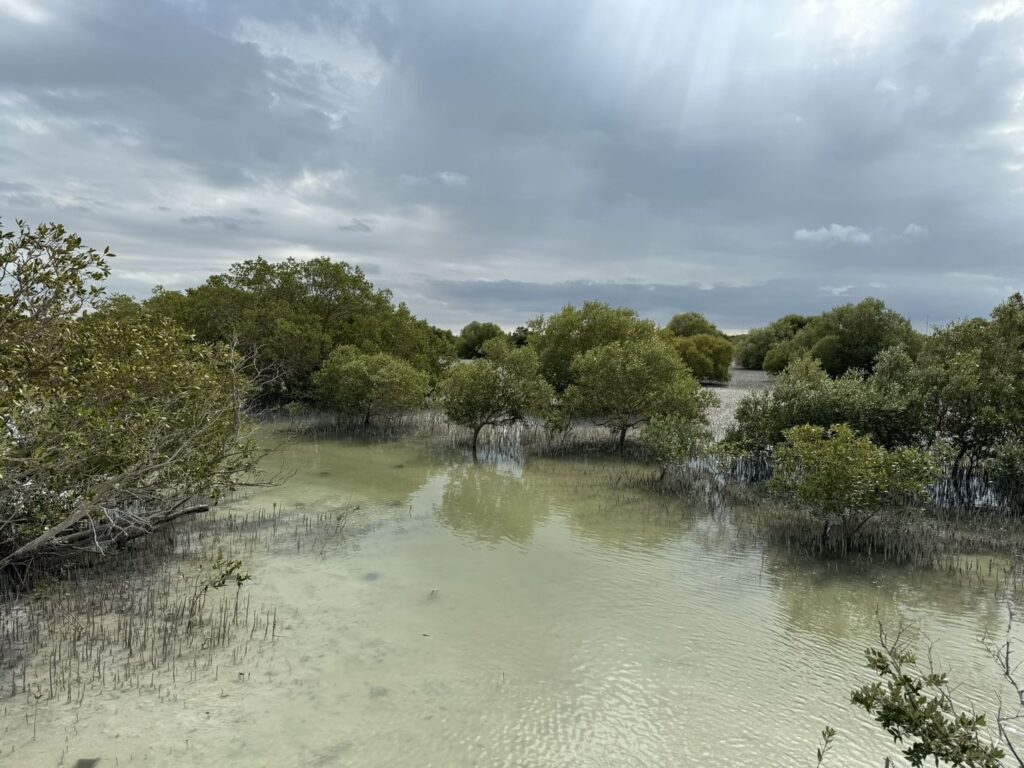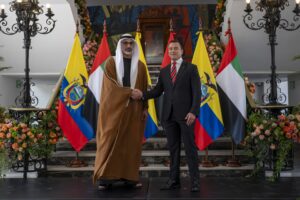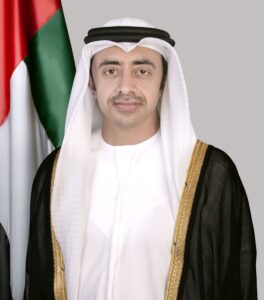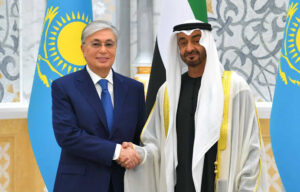UAE Reaffirms Commitment to Mangrove Conservation on International Day

Abu Dhabi, The Gulf Observer: Dr. Amna bint Abdullah Al Dahak, Minister of Climate Change and Environment of the United Arab Emirates, reaffirmed the country’s steadfast commitment to conserving one of the planet’s most crucial and vulnerable ecosystems—the mangroves—on the occasion of the International Day for the Conservation of the Mangrove Ecosystem.
In her official statement, Dr. Al Dahak emphasized the importance of this day as a moment to “celebrate our progress and reaffirm our commitment to strengthening these precious natural assets.” She described the mangroves as “spectacular and majestic,” highlighting their role as “a natural shield against rising seas, coastal erosion, and the impacts of climate change.”
The Minister pointed out that mangroves are not only essential for coastal protection but also serve as powerful carbon sinks, capable of storing up to four times more carbon than other tropical forests. She noted their indispensable role in supporting biodiversity by offering vital food and shelter to numerous marine and terrestrial species.
Dr. Al Dahak stated that the UAE’s national strategy—guided by the forward-looking vision of its leadership—aims to conserve and develop mangrove ecosystems both within the country and globally. “As nature-based solutions to climate change, we consider mangrove ecosystems instrumental in reaching our Net Zero target by 2050,” she affirmed.
As part of this commitment, and in line with the UAE Biodiversity Strategy 2031, the nation is advancing toward its ambitious goal of planting 100 million mangroves by 2030. The Minister emphasized the importance of inclusive participation, calling on communities, industries, and both public and private sectors to unite in achieving this target.
Dr. Al Dahak also highlighted the significance of international cooperation, particularly through the Mangrove Alliance for Climate (MAC), which now includes 45 member countries. “Through MAC, the UAE has endorsed the Mangrove Breakthrough, a global initiative to mobilise financial support and accelerate conservation efforts from governments, the private sector, and non-state actors,” she said.
She further referenced the establishment of the Mohamed bin Zayed–Joko Widodo International Mangrove Research Centre in Bali as a milestone in advancing global mangrove preservation and scientific collaboration.
Looking ahead, Dr. Al Dahak underlined the strategic importance of the upcoming IUCN World Conservation Congress, scheduled to take place in Abu Dhabi this October. She described the event as “a platform to advance solutions that build ecological resilience, champion progressive policy, and cultivate the conditions necessary for flourishing biodiversity, including within our critical mangrove habitats.”
Concluding her remarks, the Minister urged the public to play an active role in mangrove protection: “We must act decisively to protect them and reverse their decline, for their vitality is intrinsically tied to our own.”


